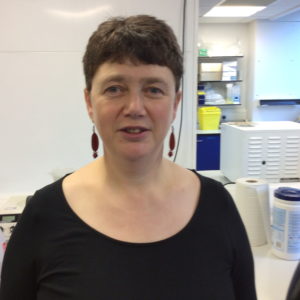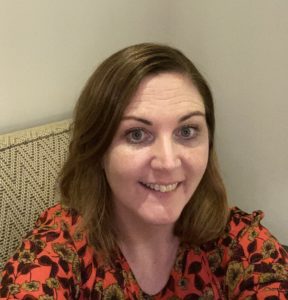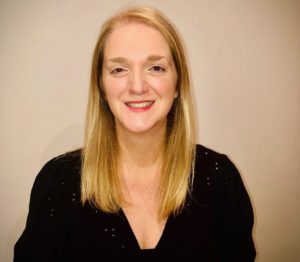SRF Mentoring Scheme
Introduction to the SRF Mentoring Scheme
The SRF would like to offer a mentoring scheme for its members as we recognise that mentoring can be crucial during your career and can help make or break your career at critical times, simply provide a second opinion or different point of view, or even provide an unrelated but knowledgeable space to discuss your academic journey.
Contacting senior academics or colleagues for mentorship can seem daunting, and since not all establishments provide mentoring schemes, the SRF Public Engagement and Membership Committee would like to provide the opportunity for SRF members to obtain mentoring from other members in the society – who have already agreed to mentor. Please also consider peer-to-peer mentoring whatever stage of your journey you are on.
Please find below a list of SRF members whom we hope you will reach out to and receive mentoring if this is something you think will be valuable.
Introduction to SRF Mentors
Prof. Niamh Forde
Do you need help with:
- Navigating the transition from PD to PI
- Science/grant proposal/applications
- CV
- 1st generation and/ or women in science
- General work life balance
I have experience in all of these and I:
- Am relatively recent 7 years since making PI transition
- Sit on and Chair international grant panels
- Have a CV 😉
I am both a female and 1st generation academic as I am the first of my family to go to University as well as a first generation academic.
Please email Niamh directly at n.forde@leeds.ac.uk
Dr Kim Jonas
Experience: Although not formally ‘mentor trained’ I have lots of mentoring experience of research staff and PhD students, and many years of undergraduate and postgraduate personal tutoring. I have also previously acted as a mentor for Social Mobility Foundation and STEMNET organisations.
Willing to offer: 1:1 Teams conversations about career conundrums!
Please email Kim directly at kim.jonas@kcl.ac.uk
Dr Federica Lopes
I am a lecturer at the University of Dundee, and happy to chat with SRF members at junior and early career stage as scientists and PIs about their career ambitions and options. Happy to give some insights into PhD-postdoc life, teaching qualifications and support in interview preparation.
Please email Federica directly at FLopes001@dundee.ac.uk
Prof. Richard Lea
Based in the School of Veterinary Medicine and Science at the University of Nottingham, I have over 30 years of experience of research focussing on environmental influences on fertility and reproduction. Over this period I have had some university mentoring training and have been mentored myself. I have also supervised many PhD, masters and undergraduate student projects and have myself adjusted to working in different universities throughout my career. I would be delighted to offer help and advice on ‘survival’ in a competitive research world, establishing successful research collaborations and networks and the challenges of maintaining a work-life balance.
Please email Richard at Richard.Lea@nottingham.ac.uk
Prof. Rod Mitchell
I am Rod, a clinical academic working between the university and NHS in Edinburgh. I have experience of mentoring students and staff within both of these environments and I am happy to provide support and mentorship to those wishing to navigate a career in clinical academia.
Please email Rod at rod.mitchell@ed.ac.uk
Dr Chris Price
He/him. I’ve survived 30 years in academia and 8 years as Head of Department, so I’ve mentored a number of students, post-docs and early career academics. Be happy to offer advice and my thoughts on post-doc life, going overseas and establishing early careers. I have been actively involved in Equality, Diversity and Inclusion (EDI) initiatives at publishing and grant-awarding institutions, and am happy discussing the incorporation of all aspects of EDI into professional development and grant writing
Please email Chris at christopher.price@umontreal.ca
Dr Suman Rice
Suman is a Reader (Associate Professor) in Reproductive Physiology at St George’s University of London. She obtained a PhD in Neurophysiology from Kings College London and after a career break of seven years to raise a family, did an MSc in Reproductive Biology in order to switch fields for her return to academia. The focus of her research is polycystic ovary syndrome (PCOS) and dysfunctional ovarian follicle growth, with its resultant fertility issues. In addition, Dr Rice teaches female reproductive physiology across many undergraduate and postgraduate teaching programmes at SGUL. She is also the Co-ordinator of the Personal Tutor system across the whole university, with responsibility for training personal tutors and supporting them and their student with welfare and pastoral concerns.
I would be happy to talk and help members on securing and maintaining independence, mobility in research, successful collaborations, and enhancing and balancing work and family life.
Please email Suman at srice@sgul.ac.uk
Dr Karen Schindler
Dr. Karen Schindler is an Associate Professor in the Department of Genetics at Rutgers University, New Jersey where her lab investigates the mechanisms by which the Aurora protein kinases regulate chromosome segregation during meiosis, is probing the genetics of female infertility in humans, and is seeking to understand how Sirtuin 7 functions control reproductive longevity. Dr. Schindler was the recipient of 2018 SSR Virendra B. Mahesh New Investigator Award, the 2020 FASEB Excellence in Science Early Career Investigator Award and is currently the director of the Gametogenesis and Embryogenesis section of the Frontiers in Reproduction course. She is willing to discuss academic careers in the US, obtaining grants and work-life balance.
Please contact her at ks804@hginj.rutgers.edu
Prof. Amanda Sferruzzi-Perri
I would be happy to talk and help members on securing and maintaining independence, mobility in research, successful collaborations, and enhancing and balancing work and family life.
Please email Amanda directly at ans48@cam.ac.uk
Professor Norah Spears

I have mentoring training and a fair bit of mentoring experience. I would offer one-off meetings with people if they are at a point where they feel that would be helpful.
Please email Norah directly at Norah.Spears@ed.ac.uk
Dr Erin Williams
Hiya, I’m Erin. I’m a Senior Lecturer in Reproductive Anatomy and Physiology at the University of Edinburgh and I study postpartum health, lactation physiology and infant feeding in my lab. I’ve ridden the rollercoaster of Academia for the last 20 years and experienced the highs and lows that brings; I’ve led million euro grants and large research teams, and gotten by with seed funding in a lab of 1!
My two most fantastic yet demanding Repro Projects are my young sons! Adapting to Academic life as a Mum has been a real challenge and I have considered leaving Academia a few times over the years. I experienced postpartum anxiety after the birth of my first wee one and it has never really gone away, but I deal with it effectively using the skills I learned through coaching. This process genuinely changed my life (I know that sounds cheesy, but it’s true!), so much so, that I trained as a coach myself so that I can support myself and others on this wonderfully complex career path.
If you are looking for a mentor to help with the challenges of Academia, would like to discuss postpartum physiology, or simply just fancy an in-depth discussion of the latest Game of Thrones/House of the Dragon episode, get in touch.
Topics: Work-life balance, parenting in Academia, coping with stress and workload, career crossroads, postpartum physiology
Please email Erin directly at erin.williams@ed.ac.uk
Prof. Suzannah Williams
Suzannah Williams is a PI at the Nuffield Department of Women’s and Reproductive Health at the University of Oxford. Suzannah’s academic journey utilising various model systems has taken her to the University of Western Australia, University College Dublin, and the Albert Einstein College of Medicine in New York, providing her with invaluable research and life experiences.
The overarching theme of her research group is understanding ovarian function in health and disease. Key areas are investigating the etiology of premature ovarian failure using a mouse model and the effect of age on oocyte and somatic cell function. Suzannah has expanded her programme of research and now leads the Oxford Ovarian Fertility Preservation Research Programme with the aim of developing and improving techniques for human fertility preservation. Most recently her studies have come full circle. Her initial passion was fertility preservation for conservation, ignited during her Zoology degree, and she has just started the Rhino Fertility Project working on rhino ovaries with the aim of growing eggs in vitro.
Out of work, Suzannah enjoys getting back to nature and can be found down the stables or out and about with her 4-legged friends or weeding the veggie plot. She also has a passion for travel, scuba diving and generally anything that provides a new experience or feels like an adventure!
Please email Suzannah directly at suzannah.williams@wrh.ox.ac.uk












